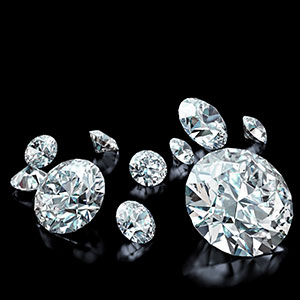
In a statement issued Dec. 6, the G7 said that “phased restrictions” will be placed on Russian-mined diamonds beginning next year, though questions remain about how the ban will work.
“We will introduce import restrictions on nonindustrial diamonds, mined, processed, or produced in Russia, by January 1, 2024,” said the statement. That wording suggests that Russian rough will be banned coming into Belgium as well as other member nations of the G7 (which includes the European Union).
The G7 said it aims to block diamonds mined in Russia but polished elsewhere, beginning March 1. But the mechanics of that have proved complicated.
A Reuters report, quoting an unnamed source, said that to start, diamond companies “will be able to use a self-declaration system like one provided by the World Diamond Council”—at least until the phase-in period concludes Sept. 1.
“Western countries initially looked at various proposals that covered rough and polished gems, but countries could not agree on polished,” said Reuters.
According to its statement, the G7 wants to introduce a “robust traceability-based verification and certification mechanism with traceability requirements” by Sept. 1. “We will continue to consult with partners, including producing and manufacturing countries, on its design and implementation,” it said.
Some in the trade worry that next September the G7 would require Belgium to become a global rough diamond clearinghouse—which they say would prove a burden on African producers and the industry generally.
In a members’ alert, the Jewelers Vigilance Committee (JVC) said the G7 statement is “broad” but “demonstrates momentum.”
“We understand that as of today, finished jewelry will not be included and that ‘diamond’ is defined to mean natural diamond (not lab-grown),” the JVC added. “But we understand both of those topics could be open for reassessment once the program rolls out.”
“What’s good news for most members is the onus is not on them,” says JVC president and CEO Tiffany Stevens. “For most of our members, they won’t have many things to do. The onus is on manufacturers mostly overseas. By the time it gets to U.S. shores, it should be resolved. It only impacts a limited group.”
Yet those that will be affected expressed concern. “We have reservations on the timelines announced for the implementation of restrictions,” said Vipul Shah, chairman of India’s Gem & Jewellery Export Promotion Council, in a statement. “Recognizing the diversity of our industry, we believe there should be more flexibility in these timelines [and] would like more details on how such decisions will be implemented.”
The G7 is composed of the United States, United Kingdom, Japan, Italy, Germany, Canada, and France. The European Union is a non-enumerated member.
(Photo: Getty Images)
- Subscribe to the JCK News Daily
- Subscribe to the JCK Special Report
- Follow JCK on Instagram: @jckmagazine
- Follow JCK on X: @jckmagazine
- Follow JCK on Facebook: @jckmagazine






